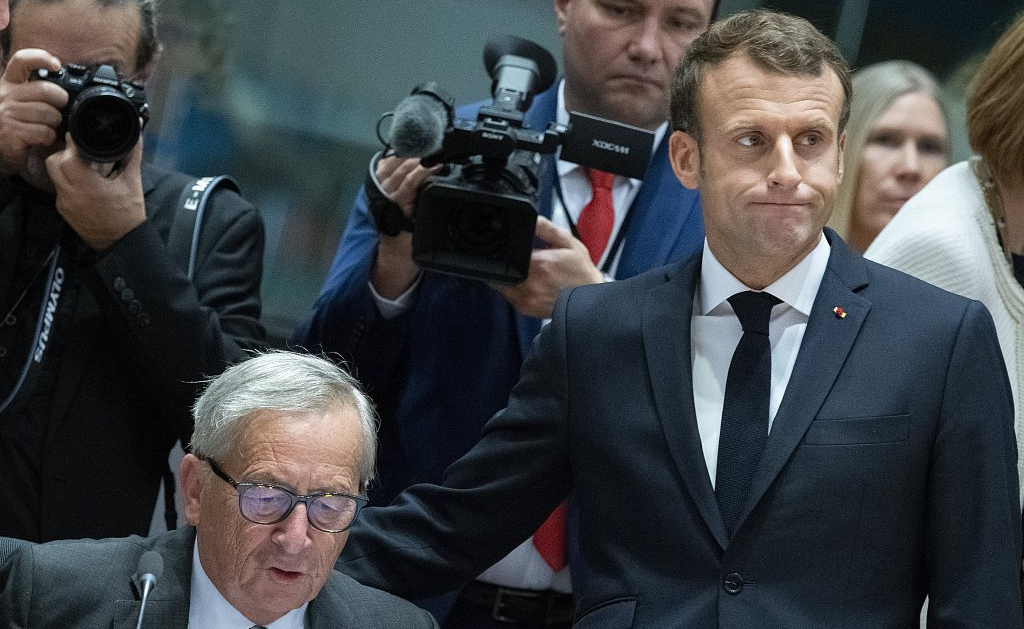Senior European Union officials have accused France of making a "historic error" by refusing to let North Macedonia and Albania start talks on joining the EU.
North Macedonia, Albania and four other Balkan countries -- Bosnia, Kosovo, Montenegro and Serbia -- are trying to join the world's biggest trading bloc following the ethnic wars of the 1990s that led to the disintegration of Yugoslavia.
What did Macron do?
French President Emmanuel Macron on Friday opposed the start of entry talks with Albania and North Macedonia in what one envoy said was an emotional six-hour debate at an EU summit.
Macron later told reporters that the membership bids could not progress until the EU, with its complex decision-making structures, changed. He did not say how it must do so.

European Commission Jean-Claude Juncker and French President Emmanuel Macron at a European Union summit in Brussels, October 18, 2019. /VCG Photo
European Commission Jean-Claude Juncker and French President Emmanuel Macron at a European Union summit in Brussels, October 18, 2019. /VCG Photo
The French president said the EU in its current shape was not able to face today's challenges or handle another financial crisis, let alone allow in two more states from the Balkans, a region scarred by wars in the 1990s and struggling with crime and corruption.
"We need a reformed European Union and a reformed enlargement process, a real credibility and a strategic vision of who we are and our role," Macron told a news conference, referring to the long process of admitting new members, which involves candidate countries meeting targets in areas such as the economy and law and order.
How did other leaders react?
Macron's position frustrated other leaders because the French president had long urged the EU to think strategically and go beyond internal squabbles, envoys said.
Jean-Claude Juncker, president of the European Commission, said France's decision was a "historic error."
Italian Prime Minister Giuseppe Conte had used the same phrase earlier on Friday and added: "We had to start membership talks, I'm very disappointed."
European Council President Donald Tusk, who chaired the EU gathering, regretted a "mistake" had been made.
German Chancellor Angela Merkel said she hoped EU leaders could review the matter at a summit next year when Croatia holds the EU's rotating presidency.
The move also received criticism from outside the EU, with the U.S. State Department saying in a statement: "We are disappointed the European Council did not recognize each country's very strong reform efforts by agreeing to open accession negotiations at this time.”
How strong is support for accession?
All EU countries have to agree before approval is given for accession talks. Over dinner at the summit, everyone except Macron backed opening membership talks with North Macedonia, which is judged to have met EU targets for a host of reforms and ending disputes with its neighbors.
There was slightly less support for Albania. France won support from Denmark and the Netherlands in its resistance to giving Albania's bid the green light, citing a need to deep measures to tackle corruption and organized crime.
Macron argued EU countries could show more meaningful support for the region with investments and by deepening cultural ties.
(With input from Reuters)